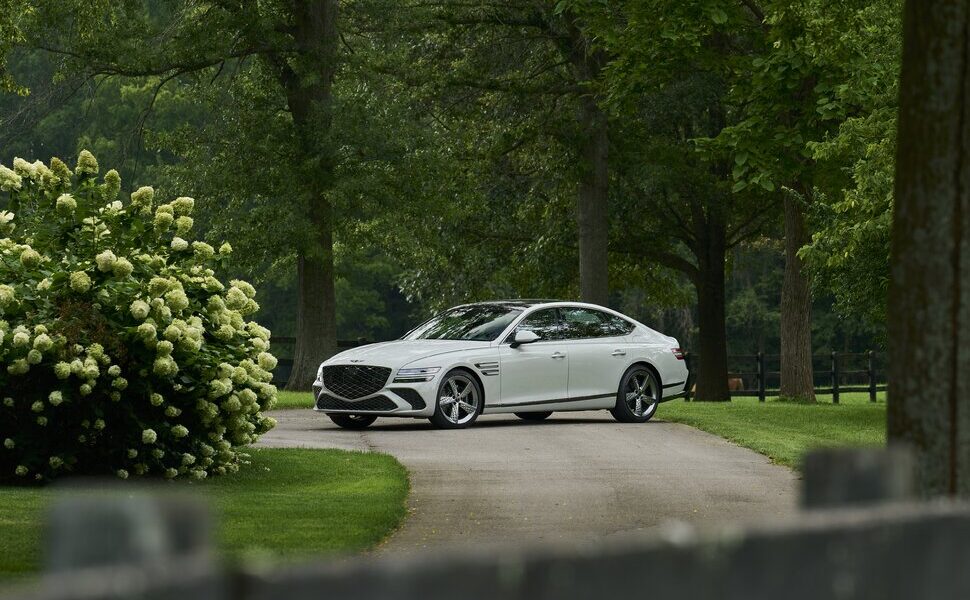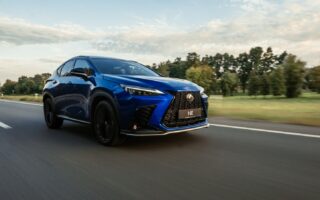Luxury cars represent more than just transportation. They’re a symbol of success, craftsmanship, technological innovation, and pure driving pleasure. For many, owning a luxury vehicle is a milestone—an affirmation of personal achievement and refined taste. From hand-stitched leather interiors to cutting-edge driver-assist systems, luxury vehicles are engineered to deliver not only performance and prestige but also a sense of exclusivity and comfort that standard cars simply cannot match.

Over the years, many automakers have risen to the top of the automotive world, producing some of the most elegant, powerful, and technologically advanced vehicles ever seen. These brands are known not just for their products, but for the legacies they’ve built—often spanning over a century of innovation, design evolution, and uncompromising quality.
Some luxury car brands focus on performance, producing supercars that dominate racetracks and thrill their drivers. Others specialize in ultra-luxurious sedans and SUVs, offering serene driving experiences and limousine-level comfort. Still, others are pioneers of sustainability, combining luxury with electric innovation to lead the future of mobility.
This comprehensive luxury car brands list will guide you through the most reputable, iconic, and influential luxury automotive manufacturers in the world. Whether you’re a seasoned car enthusiast, a potential buyer looking to upgrade your driving experience, or simply curious about what sets luxury cars apart, this article is your gateway into the world of automotive excellence. You’ll discover the history behind these storied brands, explore their most iconic models, and understand the unique attributes that make each one stand out in an increasingly competitive market.
In a world where technology, style, and performance converge, luxury cars continue to raise the bar—redefining what it means to drive in style. So buckle up, and let’s explore the finest names in automotive luxury.
Table of Contents
-
What Defines a Luxury Car?
-
The Origins of Luxury Car Brands
-
Top Global Luxury Car Brands
-
Emerging and Niche Luxury Brands
-
Luxury Electric Car Makers
-
Ultra-Luxury and Exotic Brands
-
Key Features in Luxury Vehicles
-
Buying Considerations
-
Final Thoughts
What Defines a Luxury Car?
Before diving into the luxury car brands list, it’s essential to understand what qualifies a vehicle as a “luxury car.” While the word “luxury” can mean different things to different people, in the automotive industry it refers to a specific set of characteristics that elevate a vehicle beyond the norm. A luxury car is not just about how it looks on the outside—it’s a combination of design, performance, innovation, and the overall ownership experience.

Premium Materials and Finishes
One of the most immediate and noticeable traits of a luxury car is the use of superior materials. Soft leather upholstery, real wood or metal trim, suede headliners, and high-quality plastics are standard in this segment. Attention to detail is critical. Everything from the stitching on the seats to the tactile feel of the buttons is refined to perfection. The goal is to create an environment that exudes comfort, elegance, and exclusivity.
High-End Comfort and Interior Design
Luxury vehicles are designed to pamper both the driver and passengers. Ergonomically designed seats, multi-zone climate control, ambient lighting, noise insulation, and even massage functions are common features. The cabin is not just a place to sit—it’s a space to relax, work, or enjoy the ride. Rear seats in some luxury sedans even offer executive-style layouts with recline, footrests, and personal entertainment systems.
Superior Ride Quality and Performance
Another defining characteristic of luxury cars is the driving experience. Whether it’s a silky-smooth ride or high-speed agility, luxury vehicles are engineered to deliver top-tier performance. Many offer adaptive suspensions, air ride systems, and refined powertrains that ensure a balanced blend of comfort and control. Even luxury SUVs are expected to ride smoothly while offering power and precision.
For performance-focused luxury cars—such as those from Porsche or BMW’s M division—acceleration, cornering ability, and responsiveness are prioritized without compromising on refinement.
Advanced Technology and Safety Systems
Luxury cars often serve as a testing ground for cutting-edge automotive technologies. Features like augmented reality navigation, artificial intelligence-driven infotainment, autonomous driving aids, and advanced connectivity systems usually debut in this segment.
Safety is also a top priority. Most luxury vehicles are equipped with a suite of driver-assistance technologies, such as lane-keeping assist, adaptive cruise control, night vision, automatic emergency braking, and surround-view cameras. These features not only enhance safety but also offer a more relaxed and confident driving experience.
Exclusive Design and Brand Prestige
Design is another major element that sets luxury cars apart. These vehicles often feature distinctive and timeless styling that reflects their brand’s heritage and values. Whether it’s the bold grille of a Rolls-Royce, the sleek lines of an Aston Martin, or the minimalist elegance of a Tesla, luxury cars are designed to stand out without being flashy.
But beyond aesthetics, luxury cars carry an intangible value—brand prestige. Driving a luxury car signifies a certain lifestyle, status, and identity. The emblem on the hood tells a story, one of legacy, craftsmanship, and exclusivity.
Segmentation and Variety
Luxury cars are available in various body styles and segments to suit different tastes and needs:
-
Sedans: Comfortable and elegant, often used for executive transportation.
-
SUVs: Combining utility and opulence, these are the fastest-growing category in luxury.
-
Coupes and Convertibles: For those who seek a sportier and more emotional driving experience.
-
Grand Tourers and Sports Cars: Built for performance and long-distance comfort.
-
Electric Luxury Vehicles: Blending sustainability with cutting-edge tech and modern design.
These vehicles are typically more powerful, better-equipped, and more refined than their mainstream counterparts. They not only meet your expectations but aim to exceed them in every category—from how the car feels when you close the door to how it handles on a winding mountain road.
The Origins of Luxury Car Brands
The story of luxury cars is deeply intertwined with the rise of the automobile itself. Many of the world’s most iconic luxury car brands were born in Europe and the United States during the late 19th and early 20th centuries, a time of rapid industrialization, artistic renaissance, and technological ambition. These early automakers didn’t just aim to build transportation—they sought to craft rolling works of art that blended performance, beauty, and exclusivity in equal measure.
European Beginnings: Engineering Meets Elegance
Europe, particularly Germany, the United Kingdom, and Italy, played a foundational role in the birth of the luxury automotive world. Brands like Mercedes-Benz, Rolls-Royce, Bentley, and Bugatti emerged as pioneers, producing vehicles that combined mechanical innovation with handcrafted elegance.
-
Mercedes-Benz, formed in 1926 from the merger of Karl Benz and Gottlieb Daimler’s companies, quickly positioned itself as a benchmark in automotive engineering and luxury. The brand’s focus on safety, performance, and comfort made it a favorite among royals, diplomats, and affluent buyers across the world.
-
Rolls-Royce, founded in the UK in 1906, became synonymous with ultimate prestige. Their commitment to quiet, powerful engines and unmatched craftsmanship helped the brand define what it meant to build the “best car in the world.”
-
Bentley, also British and established in 1919, added a sporting twist to luxury. Known for their victories at Le Mans in the 1920s, Bentley vehicles married performance with comfort, creating a new niche in the luxury world.
-
Bugatti, originally founded in France by Italian-born Ettore Bugatti, was celebrated for creating some of the most beautiful and mechanically sophisticated cars of the pre-war era. Cars like the Type 41 Royale were both luxurious and rare, emphasizing exclusivity.
These brands weren’t just carmakers—they were artisans, engineers, and visionaries who believed that a car could be more than a machine. They saw the automobile as a status symbol, an object of desire, and a representation of their national pride and design philosophy.
American Innovation and Prestige
Meanwhile, across the Atlantic, the United States was also shaping its own luxury car culture. While Ford revolutionized mass production, brands like Cadillac, Lincoln, and later Chrysler’s Imperial line introduced the American public to a new level of automotive sophistication.
-
Cadillac, founded in 1902, positioned itself early as a luxury innovator. It was the first car brand to mass-produce precision-built vehicles and became known for technological firsts such as electric starters, V8 engines, and later, automatic climate control. Cadillac soon became the “Standard of the World” in American luxury.
-
Lincoln, established in 1917 and acquired by Ford in 1922, became a symbol of presidential elegance. Lincoln limousines were used by U.S. presidents for decades, cementing the brand’s image as both stately and stylish.
These American luxury brands catered to a growing class of affluent individuals who desired big, comfortable, feature-rich cars—many with bold styling, chrome finishes, and interiors fit for royalty.
Post-War Expansion and Global Influence

The aftermath of World War II saw a significant transformation in the luxury car landscape. With economies rebuilding and global trade increasing, brands expanded beyond their home countries and began to establish international reputations.
-
German brands like BMW, which originally built aircraft engines and later motorcycles, entered the luxury market post-war with precision-engineered sedans and performance vehicles that appealed to both enthusiasts and executives.
-
Japanese luxury, which didn’t emerge until the late 20th century, was inspired by European refinement but designed with a focus on reliability, quality, and affordability. Brands like Lexus, Infiniti, and Acura were introduced in the 1980s and 1990s to challenge the European dominance—and they succeeded in many markets.
This post-war era also introduced the concept of global luxury, where brands were no longer tied just to their national identity but were now recognized worldwide as symbols of elite craftsmanship and technological leadership.
The Role of Heritage in Today’s Luxury Market
Today, the legacy of these origins still matters. Heritage is a powerful element in luxury branding. Buyers often gravitate toward companies with deep roots, longstanding traditions, and stories that span generations. Whether it’s Mercedes-Benz’s engineering history, Rolls-Royce’s royal associations, or Ferrari’s racing pedigree, the heritage of a luxury brand adds an emotional dimension to every vehicle.
Many modern luxury carmakers continue to blend tradition with innovation—keeping their classic design philosophies intact while incorporating futuristic technology, from electric drivetrains to autonomous features.
Top Global Luxury Car Brands
Here is the definitive luxury car brands list that includes some of the most recognized and prestigious names in the world.
Mercedes-Benz
Origin: Germany
Founded: 1926
Mercedes-Benz is often the first name that comes to mind when discussing luxury vehicles. Known for its timeless design, engineering excellence, and pioneering technology, the brand offers a wide range of vehicles from executive sedans like the E-Class to the luxurious S-Class and high-performance AMG models.
BMW
Origin: Germany
Founded: 1916
BMW is synonymous with the phrase “The Ultimate Driving Machine.” It combines performance, technology, and comfort in a way that appeals to both enthusiasts and executives. BMW’s 3 Series, 5 Series, and X Series SUVs are some of the most iconic models in the market.
Audi
Origin: Germany
Founded: 1909
Audi has built a reputation for minimalist design, quattro all-wheel-drive technology, and a strong emphasis on innovation. From the A8 luxury sedan to the Q8 SUV and the high-performance RS lineup, Audi competes at the highest levels of automotive design.
Lexus
Origin: Japan
Founded: 1989
Lexus is Toyota’s luxury division and is known for its ultra-smooth ride, reliable engineering, and plush interiors. The LS and ES sedans, along with the RX SUV, are staples in luxury car circles.
Porsche
Origin: Germany
Founded: 1931
Although Porsche is best known for its high-performance sports cars like the 911, it also produces luxury SUVs like the Cayenne and Macan and the luxurious Panamera sedan. The brand combines performance and opulence in unique ways.
Cadillac
Origin: United States
Founded: 1902
A historic American luxury brand, Cadillac has undergone a modern renaissance. Models like the Escalade and CT5-V Blackwing showcase Cadillac’s commitment to blending tradition with modern power and luxury.
Jaguar
Origin: United Kingdom
Founded: 1922
Jaguar blends British elegance with spirited performance. Though its lineup has shrunk, the F-PACE SUV and F-TYPE sports car still carry the brand’s refined charm.
Land Rover (Range Rover)
Origin: United Kingdom
Founded: 1948
While technically an SUV manufacturer, Land Rover’s Range Rover models are some of the most luxurious vehicles on the road. Opulent interiors, off-road capabilities, and prestige make it a top choice.
Volvo
Origin: Sweden
Founded: 1927
Volvo offers Scandinavian luxury with a strong emphasis on safety and environmental consciousness. The XC90 and S90 models are leading choices for those who prefer understated elegance.
Emerging and Niche Luxury Brands
While the mainstream luxury car brands dominate global sales, several smaller or emerging manufacturers are making waves with unique offerings.
Genesis
Origin: South Korea
Founded: 2015
Genesis, the luxury division of Hyundai, has quickly gained respect for its beautifully designed sedans and SUVs like the G80 and GV80. It provides excellent value with high-end craftsmanship and technology.
Polestar
Origin: Sweden
Founded: 2017
Polestar started as a performance sub-brand of Volvo and has now grown into a standalone luxury electric car manufacturer. The Polestar 2 and Polestar 3 showcase futuristic design and sustainability.
Infiniti
Origin: Japan
Founded: 1989
Infiniti is Nissan’s luxury brand. Though it has struggled in some markets, vehicles like the QX60 offer competitive features and upscale styling.
Acura
Origin: Japan
Founded: 1986
Acura, Honda’s luxury division, focuses on performance-oriented luxury. The MDX SUV and TLX sedan provide strong reliability and comfort.
Luxury Electric Car Makers
With the automotive industry shifting towards electrification, several luxury brands have taken the lead in the EV revolution.
Tesla
Origin: United States
Founded: 2003
Tesla has disrupted the automotive world with its luxury EV lineup including the Model S, Model X, and Model Y. Known for acceleration, range, and Autopilot technology, Tesla is often the first name in electric luxury.
Lucid Motors
Origin: United States
Founded: 2007
Lucid Motors focuses on ultra-luxury electric sedans. The Lucid Air has been praised for its innovative design, long range, and cutting-edge tech.
Rivian
Origin: United States
Founded: 2009
While focused on adventure, Rivian’s R1T and R1S also offer a premium experience. Interior quality, driving dynamics, and sustainable focus position it among luxury EV makers.
BYD (YangWang)
Origin: China
Founded: 1995 (YangWang division launched in 2023)
YangWang, BYD’s luxury sub-brand, offers high-end electric SUVs and sedans targeting global markets. It reflects China’s growing ambition in the luxury EV space.
Ultra-Luxury and Exotic Brands
Some brands cater to the top one percent, offering exclusive craftsmanship, customization, and price tags that often exceed six figures.
Rolls-Royce
Origin: United Kingdom
Founded: 1906
Rolls-Royce stands at the peak of automotive luxury. Every vehicle, from the Ghost to the Phantom and Cullinan SUV, is handcrafted to perfection and symbolizes ultimate opulence.
Bentley
Origin: United Kingdom
Founded: 1919
Bentley blends performance and luxury with models like the Continental GT and Bentayga SUV. Its interiors are works of art made from the finest materials.
Aston Martin
Origin: United Kingdom
Founded: 1913
Known for its association with James Bond, Aston Martin creates visually stunning and fast cars. The DB12 and Vantage are examples of timeless British design.
Ferrari
Origin: Italy
Founded: 1939
While Ferrari is primarily known for performance, recent models like the Purosangue SUV combine speed with luxury. Ferrari’s aura and brand value are unmatched.
Lamborghini
Origin: Italy
Founded: 1963
Lamborghini produces wild, aggressive cars that scream exclusivity and power. The Urus SUV has made the brand accessible to luxury SUV buyers.
Bugatti
Origin: France
Founded: 1909
Bugatti builds hyper-luxury vehicles with extreme performance. The Chiron, for instance, blends 1,500 horsepower with unmatched craftsmanship.
Key Features in Luxury Vehicles
Luxury car brands distinguish themselves through more than just an iconic badge or a hefty price tag. What truly sets them apart are the features and experiences they offer—elements designed to delight, comfort, and impress even the most discerning drivers and passengers. Below are the defining characteristics that elevate a vehicle into the luxury category.

Handcrafted Interiors with Premium Materials
One of the first things you’ll notice when stepping inside a luxury vehicle is the uncompromising attention to detail. These interiors are often hand-assembled, with artisans carefully selecting and stitching materials that include:
-
Supple, full-grain leather or even exotic hides like Alcantara
-
Real wood veneers, carbon fiber trim, brushed aluminum, or crystal inlays
-
Suede or microfiber headliners for a refined finish
-
Precision stitching and piping that reflect craftsmanship
Every surface you touch is soft, every detail intentional, and the overall aesthetic is designed to make you feel pampered and inspired.
Adaptive Air Suspension for a Smooth, Composed Ride
Ride comfort is paramount in a luxury car. Many top-tier brands equip their vehicles with adaptive air suspension systems, which automatically adjust the stiffness and height of the suspension based on driving conditions, speed, and road surface.
This allows for:
-
Smoother travel over rough terrain or potholes
-
Improved handling during cornering or high-speed driving
-
Ride height adjustment for easier entry, sporty performance, or off-road capability (especially in luxury SUVs)
Whether you’re gliding down the highway or navigating a cobblestone street, the ride remains silky-smooth and composed.
Heated, Cooled, and Massage Seats
Comfort isn’t just about ride quality—it’s about how you feel inside the cabin. Luxury vehicles go above and beyond with multi-functional seating systems that do more than just adjust.
You’ll often find:
-
Heated and ventilated seats in both front and rear rows
-
Multi-mode massage functions tailored to specific needs like lower back, shoulders, or thighs
-
Power-adjustable lumbar support, memory settings, and sometimes even footrests in executive sedans
-
Rear seat entertainment and reclining options in chauffeur-style configurations
It’s like bringing a spa or first-class airline seat into your car.
Cutting-Edge Infotainment and Connectivity
In the digital age, luxury cars are expected to lead in technology and entertainment. Most brands offer:
-
Large, high-resolution touchscreen displays with intuitive interfaces
-
Voice-controlled virtual assistants (e.g., Mercedes MBUX, BMW iDrive, Audi MMI)
-
Wireless Apple CarPlay and Android Auto
-
Rear-seat entertainment with independent controls and headphone jacks
-
Premium surround sound systems from brands like Bang & Olufsen, Burmester, Mark Levinson, or Naim
-
Real-time navigation with augmented reality, over-the-air updates, and app integration
Passengers stay connected, entertained, and in control at all times.
Driver-Assist and Semi-Autonomous Features
Safety and convenience go hand-in-hand in luxury vehicles. Many models offer Level 2 semi-autonomous driving capabilities, along with an extensive suite of driver-assistance features, such as:
-
Adaptive cruise control with stop-and-go functionality
-
Lane-keeping assist and lane centering
-
Automatic emergency braking with pedestrian and cyclist detection
-
360-degree surround view cameras and self-parking systems
-
Night vision with thermal imaging
-
Blind-spot monitoring with active steering intervention
These features not only reduce fatigue and stress on the road but also enhance confidence and safety in busy urban or highway environments.
Customization and Personalization Options
One hallmark of a true luxury car is the ability to make it uniquely yours. Top brands offer bespoke customization programs that let buyers tailor everything from:
-
Exterior paint colors (including custom, multi-layered finishes)
-
Interior trim combinations
-
Embroidery, monogramming, and even unique badging
-
Wheel designs, lighting configurations, and interior themes
-
Optional packages for sport, luxury, off-road, or executive usage
Brands like Rolls-Royce (Bespoke), Bentley (Mulliner), and Mercedes-Maybach offer limitless possibilities—if you can imagine it, they can build it.
Powerful Engines and Electrified Performance
Under the hood, luxury vehicles are just as impressive. Whether powered by internal combustion, hybrid, or electric powertrains, luxury cars offer:
-
High-output engines: turbocharged V6, V8, and V12 options for blistering acceleration
-
Plug-in hybrid systems that combine power with efficiency and silent driving modes
-
Fully electric models that deliver instant torque and a whisper-quiet experience
-
Performance-tuned variants (like BMW M, Audi RS, Mercedes-AMG) for enthusiasts
-
Drive modes that adapt throttle response, suspension, steering, and even exhaust sound
Even large, luxury SUVs like the Bentley Bentayga or Range Rover Autobiography can hit 60 mph in under five seconds while cocooning passengers in total comfort.
Buying Considerations
Purchasing a luxury car is a major investment. Here are factors to consider:
-
Purpose: Is the car for daily driving, weekend cruising, or business presentation?
-
Budget: Luxury cars range from $40,000 to several million dollars.
-
Resale Value: Some brands like Lexus and Porsche retain value better than others.
-
Ownership Costs: Maintenance, insurance, and depreciation can be high.
-
Service Network: Ensure there’s a nearby dealer or certified mechanic.
-
Technology: Some buyers prioritize the latest tech, while others focus on heritage and design.
-
Driving Feel: Always test drive to match your preferences in ride comfort and handling.



